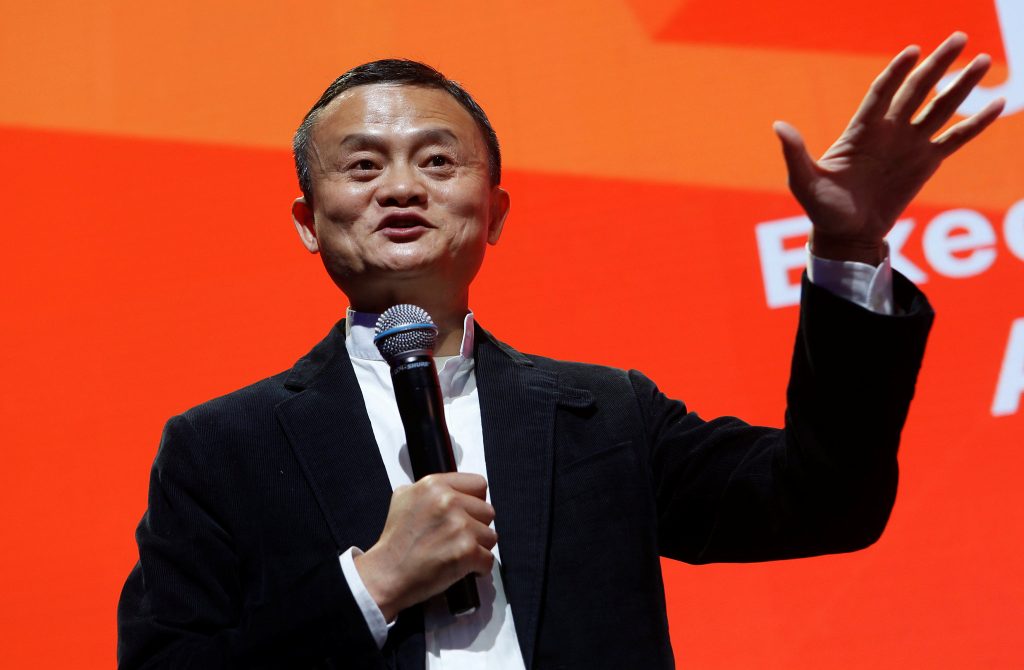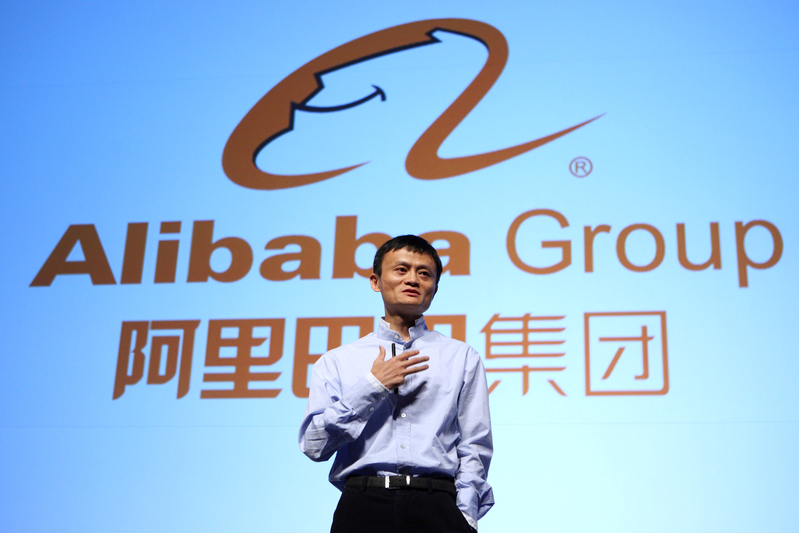Wei Zhang’s advice for young filmmakers, and changing trends in China’s film industry.
“All the talk these days is about artificial intelligence and what machines will be able to do in 20 years,” Alibaba Pictures President Wei Zhang says, from her penthouse office in Southern California with sweeping views of the San Gabriel Mountains. “Increasingly, people realize that it’s really the creative and emotional side of humans that machines cannot easily replicate.”
Timeless themes are on Zhang’s mind these days as she tries to steer Alibaba Pictures—the film unit of China’s biggest e-commerce company—into a technologically evolving future. She set up shop in the Los Angeles area in 2016, tasked by CEO Jack Ma to develop Alibaba’s entertainment business and find stories to share with the content-hungry audience in China, soon to be the largest movie market in the world.
Alibaba then invested and entered into a partnership with Steven Spielberg’s production company, Amblin Entertainment. That was in 2016, at the height of feverish Hollywood-China deal making, when Chinese investment in U.S. entertainment reached $5 billion. Now some of those high-profile deals have fallen through, but Alibaba’s partnership with Amblin is still going strong, Zhang says, pointing to success in the marketing and distribution of “A Dog’s Purpose,” a little-known film that hit it big in China to the tune of $88 million.
“Our mission here is to be the gateway from Hollywood to China,” Zhang says. “Our strategy was never to buy a U.S. movie studio and get into the America market. We want to be the platform to help our partners succeed in China.”
She sat down with us to talk about Alibaba Pictures’ U.S. strategy, and her efforts to cultivate young filmmakers.
What kinds of projects are you currently working on?
We have a long-term view of the industry, and are taking our time developing content with Amblin. At the same time, we see ourselves as a platform company, so Amblin is not our only partner; we are working on some co-production projects with others—some are studios, some are independent mini-studios. If there’s content with marketing potential, we will help them bring it to China.
Our goal in entertainment is not just to make a few movies. We’re not here to create another traditional movie studio. There are a lot of people making movies, and while we still need to make movies to understand how content is created, we are a new movie infrastructure company with internet DNA; we use technology, data, and our ecosystem to bring more efficiency and transparency to the filmmaking process, so that more talented creative people can find their space in the industry and reach an audience.
For example if we do marketing and distribution, we are going to find our unique approach. We’re going to leverage a lot of the resources we have in the Alibaba ecosystem through data analysis, knowing the needs of our sellers and other business units, and use content as a way to bring mutually beneficial initiatives. So our goal is to bring value to the table. It’s all about how to use what we’ve accumulated as a technology company to help improve the way things are done. That’s our priority.
So how exactly did you pull off “A Dog’s Purpose” success in China?
There has never been an animal-related movie that’s made any real money in China theatrically, so when we first took this film back to China, they said: “Oh, this is a nice movie, but people will only watch on their iPad, they will not want to come out to the movie theater.” This movie has no big stars, no special effects. It’s just a heartwarming story about humans and dogs.
But we had this gut instinct that this movie had some universal human emotions that people can relate to. We found data saying that 30 percent of the Chinese population has some kind of pet. Given we have 1.3 billion people, that’s a big market. Then we also saw on our e-commerce platform that we have a category for pet food, accessories and other pet-related products, and that category had been growing healthily over the years. So we knew there was a population of people who were willing to spend a lot of money on pets—in fact we call them power users. As China’s middle class grows, they’re searching for quality of life, and more ways to tie their emotions with something tangible, and they treat pets like their children.
Through research we knew the film’s director previously made another movie about a dog that had a big engaged online fan group. However, it had a very sad ending, and a lot of people were commenting that they never wanted to see a movie like that again because it was too heartbreaking. So we knew early on that we needed to tell people that this is a happy story. Even though you will have some tears, you’re going to walk away satisfied. You’re not going to walk away depressed. It’s important, right?
We did a lot of creative marketing online. In China, over 80 percent of movie tickets are sold online on apps, so it’s very different than the U.S. In China people never put on TV ads for movies, where in the U.S. that’s a major spend for marketing expenses. So we did a lot of non-traditional innovative marketing campaigns – where you can bring your dog to a premiere and walk the red carpet together. This created so much word of mouth, we actually had a better second weekend than the first, and in the end the performance exceeded the U.S. box office. To Amblin this is something they never imagined. It’s a huge win for them as well. Now we’re developing a sequel of the movie, “A Dog’s Journey.”
Does this signal any new trends in China’s film industry?
In the past, maybe the big visual spectaculars were the most popular type of movies people go out to see, but the audience is maturing and they’re developing their own taste. This is a big change in China’s movie industry; some movies that you would never imagine can make a dent theatrically are actually becoming these dark horses that produced surprising results.
For example, a little wrestling movie from India called “Dangal” made it huge in China. There’ also a Spanish crime thriller called “The Invisible Guest,” that did really well in China as well. So you have good stories with universal themes from different parts of the world succeeding in China. I think this helped people to see many different genres of movies are possible as long as you know who your content is for, and you have a way to reach them. In all the work we do, I’m very big on getting the story right. That’s how you get to people’s heart, is if they can actually feel it.
Alibaba Pictures recently organized a student film competition in which young filmmakers were tasked with making short films about Los Angeles area non-profit organizations. Why did you do this?
Jack always says giving money is the easiest thing to do, but putting in your time and participating is even more important. We’re looking for the right opportunity where we not only support a cause financially, but also use our resources, skills, and network to do something different, and that’s how Big Heart, Small Film came about.
In China, the movie industry took off so rapidly, and there’s a big lack of skillful talents in all different aspects related to the movie industry. Young people need a way to showcase themselves, they need something hands-on, that allows them to be creative, and can give them exposure. On the one hand, we wanted to raise awareness about local non-profits and get more people involved. We wanted to get these young people a path to show their creativity and help them to expand their career.
The contest was open to students of all ethnicities, it was not by design that the majority wound up being Chinese filmmakers; it’s probably because they know Alibaba’s brand. But when you watch the films, you have no idea they were made by Chinese kids. They’re so global and creative, and you can tell they have a profound understanding of the subject matter. This is what the film industry needs: fresh ideas, new blood.
In a typical Chinese family, if a kid wants to work in the movie industry, the parents will respond with, “How are you going to feed yourself?” It’s not a typical career path that parents approve of, so it has not been easy for these kids to get to where they are today, and I’m just so proud that they threw themselves into their dreams and did such great work. We are connecting them to Alibaba Pictures’ Plan A program in China, which cultivates young filmmakers and gives them a path to submit screenplays. I’m hoping that more Chinese parents and companies are realizing how important it is to give kids the room to explore.
Do you have any advice for young people?
Be brave, follow your heart, do something that you really care about. Especially when you’re young, you’ve got nothing to lose. Don’t let your life go wasted.
Be persistent when you run into difficulties. Giving up is the easiest decision, to erase some pain at the moment, but sticking through it really pays off. Whatever pain you’re experiencing at that moment, it seems like the greatest pain in your life. But then five years later when you look back, it really always seems like not that big of a deal. So all I’m saying is, don’t make any emotional decisions at the moment. Let it sit, and simmer a little bit. Sometimes time can really change how you see it. Hold back a little bit, and really think it through. Sometimes you do need to make a change—I’m not saying never change, but just don’t make that kind of impulsive decision in the heat of the moment.
See the situation as a training for yourself. The difficult people I’ve met along the way, I silently say to them, “Thank you for training me. If I can get through this, then next time I meet someone like you, it will not bring me down.” Life is difficult, nothing is easy. The grass is always greener on the other side but when you go to the other side, it’s not that green. That’s always the case. As a young person you can’t really tell. You always feel like “Oh, I want to put this behind and get a fresh start.”
When I hire people, I’m very cautious when I see people jump jobs every two years. That’s a big no-no for me. Many people at the moment just say, “I quit! I’m out of here, you’re not my boss, none of this matters!” But then when you go somewhere else you’re going to run into the same thing again. As you grow older you realize this, so give yourself a little time. We all have our flaws, and we need to accept that we’re always going to have the glass half empty too, it will never be full. That’s the yin and yang of life.
–This article originally appeared on Reach Further.










